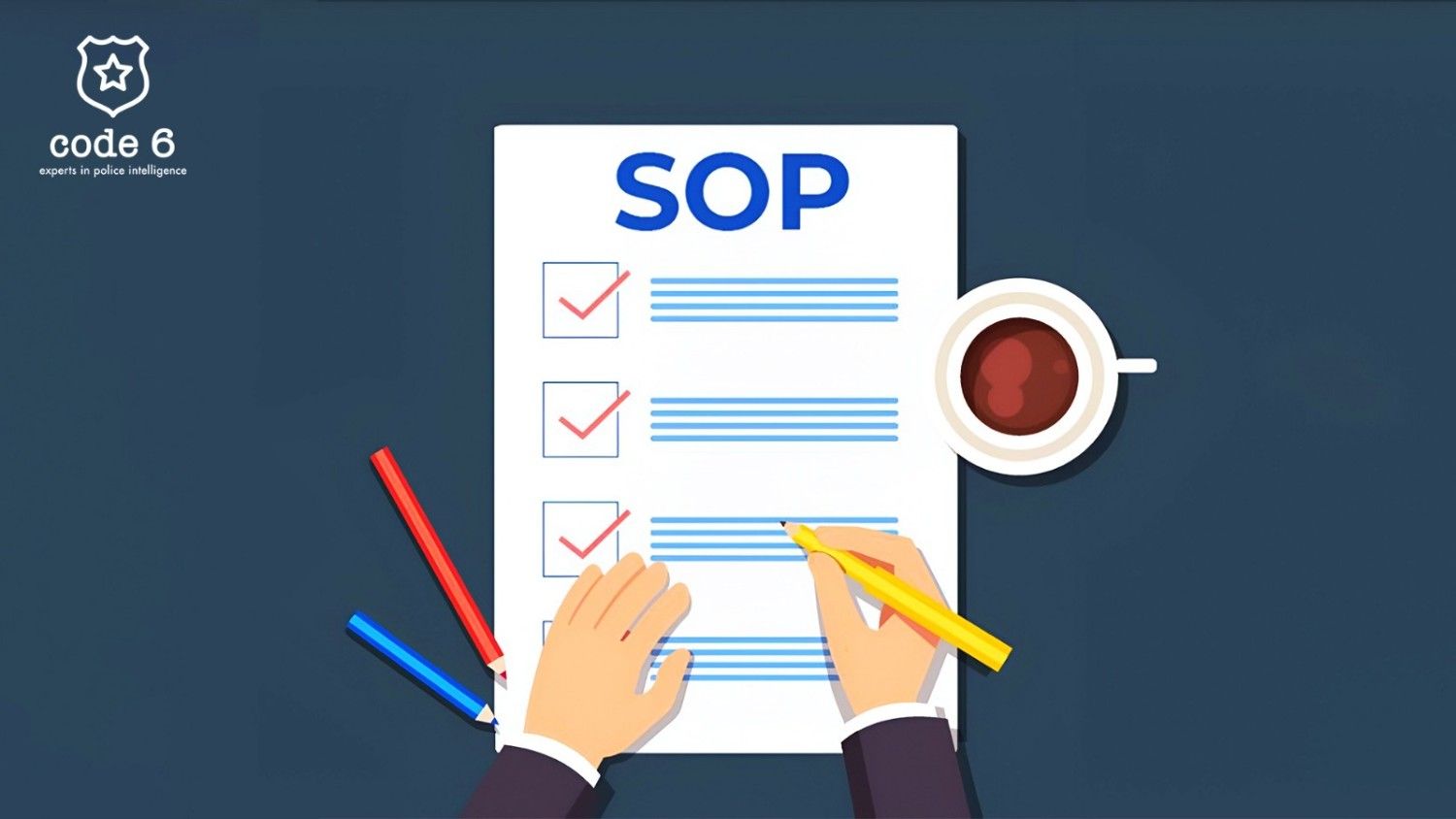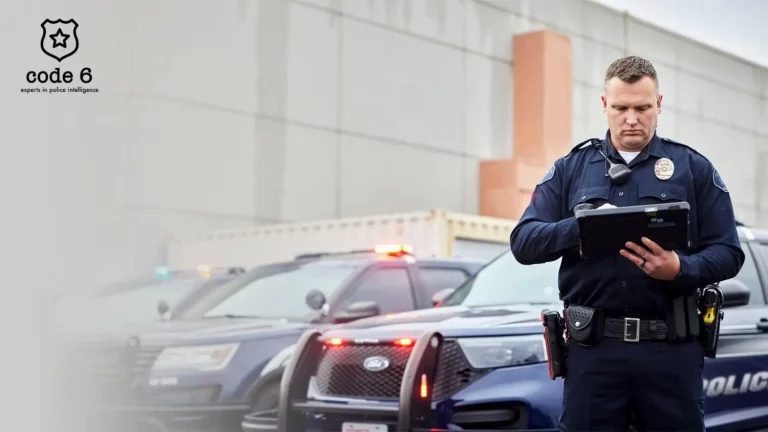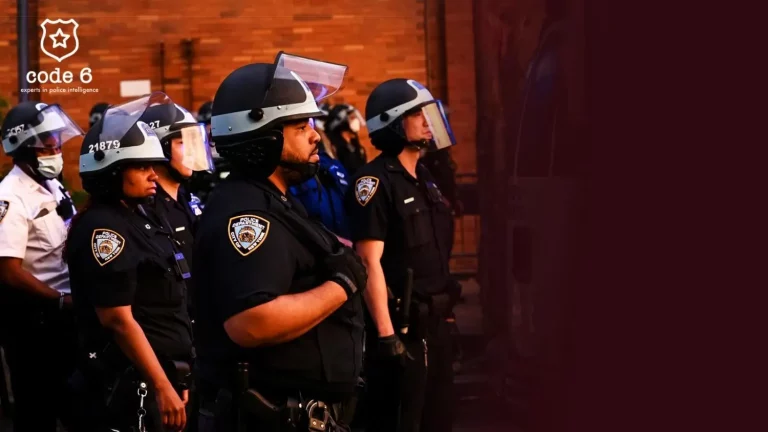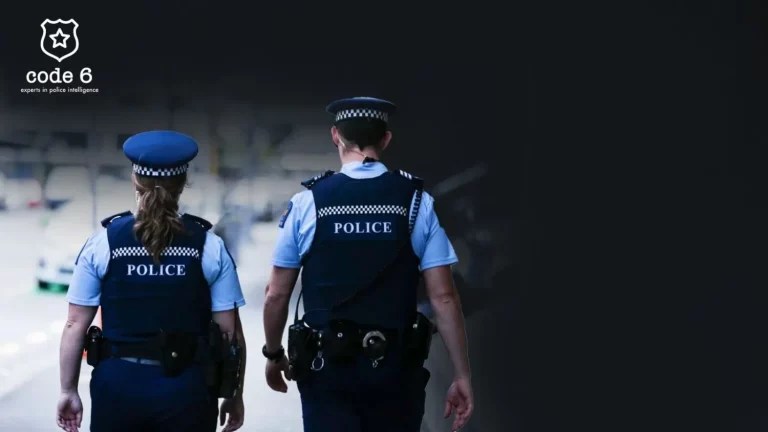Introduction
In law enforcement, consistency and clarity work together for efficient operations. Rather, Standard Operating Procedures now serve as blueprints for officers so that every action they take would be aligned with what constitutes as sensible legal and ethical standards. Without clear SOPs, police departments could mislead, be inefficient, and even breed public distrust.
This discusses the function of SOPs in the modern police department and why they are crucial, along with information on tools such as The Code Six that assist agencies in the development and implementation of SOPs.
What Are Standard Operating Procedures (SOPs)?
Definition and Purpose of SOPs in Law Enforcement
Procedures and Their Definitions: SOP in Law Enforcement
A Standard Operating Procedure (SOP) is a comprehensive elaboration of the procedural arrangements that the police department has for officers to follow in respect of various situations, such as:
✔ Arrest – Procedures
✔ Crime Scene Investigations
✔ Use of Force Protocols
✔ Evidence Collection and Handling
✔ Emergency Response
An SOP will ensure consistent and professional behavior by officers while acting or inaction against mistakes as well as making sure there is compliance with applicable laws.
The Difference Between Policies, Procedures, and Guidelines
| Term | Definition | Example in Policing |
| Policy | High-level rules and principles. | “Officers must use body cameras during public interactions.” |
| Procedure | Step-by-step instructions on how to execute policies. | “Turn on the body camera before engaging with a suspect and announce recording.” |
| Guideline | Recommendations that allow discretion. | “Officers should aim to de-escalate before using force.” |
How SOPs Ensure Consistency in Policing Operations:
Strictly adhering to standards of procedure, the actions of the police will therefore
✔ Allow informed decision-making even under extreme stress.
✔ Minimize opportunities for litigation by adhering to accepted standards of conduct.
✔ Enhance accountability and increase public confidence.
Why Are Standard Operating Procedures Important?
Enhance officer safety: Clearly defined SOPs guide officers in the right response to threats and emergencies.
✔ Legal compliance – Help the agency be in line with it on national and local laws to avoid possible legal liabilities.
✔ Cut down on the time: Going through structured procedures is faster and better in making coordinated responses to incidents.
✔ It promotes public trust: Upholding clear transparent SOPs promotes accountability and reduces excessive force or misconduct.
Key Areas Where SOPs Are Crucial in Law Enforcement:
Standard Operating Procedures (SOPs) play a pivotal part in benefiting law enforcement agencies in their functioning while sustaining the confidence of the public. The areas most prone to use are Use of Force, where SOPs help to guard against misuse of power through clear descriptions of de-escalation techniques and appropriate responses. Crime Scene Management is another important area; proper protocols ensure the integrity of evidence and thorough documentation required for effective investigations and court proceedings.
In high-risk situations such as Vehicle Pursuits, SOPs define when and under what circumstances officers ought to engage in pursuits for the lowest risk to both officers and the public. Similarly, Emergency Response procedures guide coordinated action among law enforcement in natural disasters, terrorist threats, or riots for fast and effective action. The emergence of digital crimes now means that Cybercrime Investigations must contain SOPs covering the handling of digital evidence, securing online data, and counteracting cyber threats.
Lastly, Community Policing stands benefit through the provisions of SOPs that provide officers with guidance on how to foster a healthy relationship with local communities to improve trust and cooperation. Establishing these key SOPs allows law enforcement agencies to become more efficient, safe, and accountable.
How The Code Six Helps Agencies Develop and Implement SOPs:
The Code Six specializes as a platform for assisting law enforcement agencies to:
✔ Create SOPs in accordance with best practices and legal standards.
✔ Digitize procedures to allow access by mobile or desktop.
✔ Automatically track and report on compliance with SOPs.
✔ Update SOPs so that officers are kept informed in real time about recent protocols.
Agencies can use The Code Six to streamline operations, conduct better officer training, and provide accountability.
The Future of SOPs in Law Enforcement:
As policing evolves, SOPs will have to respond to the challenges posed such as:
✔ Integration of AI & Predictive Analysis – Automating repetitive tasks and facilitating better decision-making.
✔ Policies Regarding Body-Worn Cameras – Standardizing officers’ use of video evidence.
✔ Cyber Security Measures – Safeguarding sensitive law enforcement data.
✔ Community Engagement SOPs – Structured communication builds police-public relations.
Conclusion:
The Standard Operating Procedures are the lifeline of a good police work. They ensure that the officers behave safely, legally, and in a consistent manner, enhancing public confidence in law enforcement.
Agencies can more efficiently develop, implement, and modify their SOPs with platforms such as The Code Six, accommodating the demands of modern policing.
🚔 Structured policing leads to safer communities. SOPs are the key to achieving that.
FAQs
1. What is the primary purpose of SOPs in policing?
Standard Operating Procedures serve to offer guidelines to law enforcement officials and help them in carrying out their tasks by ensuring accountability, efficiency, and consistency.
2. Can SOPs improve police-community relations?
Yes, standard operating procedures instills accountability and transparency thereby cultivating public trust and rushing to reduce disputes between officers and citizens.
3. How does The Code Six assist agencies in developing SOPs?
Through technology, in planning to assist police departments/guides in the creation, storage, and updating of SOPs, thus ensuring easy access, compliance tracking, and real-time updates.
🚔 Final Thought: Good SOP structures become an essential part of law enforcement of today. By adopting clear procedures and digital solutions, law agencies can create efficiency, safety, and public trust.




